Does Coding Require Math? Jobs in the computer sector are sometimes seen as unachievable by those who don’t enjoy working arithmetic all day or who worry that they lack the specialized expertise required to solve complex equations for a profession. These jobs are creative, fascinating, and frequently misunderstood. The quantity of high-level arithmetic required to work in technology is vastly overstated, despite the fact that math and tasks like website creation appear to go hand in hand.
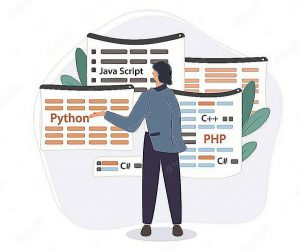
Finding out how much and how frequently math is required at work will help you determine whether a tech career is suited for you. Read on if you’re interested in learning if coding requires math. You may be surprised at the solution.
Recommended: Importance of mathematics in our daily routine
Do I have to know math to program?
Is math necessary for computer science or coding? is one of the frequently asked questions. The short answer is yes, but not in the way you may anticipate. To be a successful software developer, advanced math skills are not a requirement.
You don’t need advanced math abilities for the majority of coding careers, while some programming fields (like game development and machine learning) do demand it. To design general software or code web interfaces, you only need rudimentary math abilities, along with technical and problem-solving abilities.
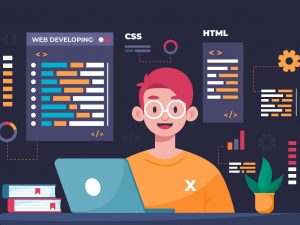
More than arithmetic abilities, becoming a competent programmer requires the ability to think critically and solve problems. You don’t need to learn any additional math skills in order to pursue careers as a web developer or software engineer; just the basic math concepts. However, the majority of the math has already been done for you, which does not imply that math is not important. For it to be used to solve a problem, you must understand how to do it.
What do you need for a job in tech now that you are aware that coding does require math? The math abilities that will make you a good coder will now be discussed.
Also see: Interesting Games that will make you smarter
The Math Skills That Programmers Do Need
A very methodical and rational topic of study, coding. You’ll employ your skill set as a web developer, programmer, or engineer to reason through issues and create solutions. You won’t need to perform a lot of arithmetic on a daily basis, so put your protractor away.
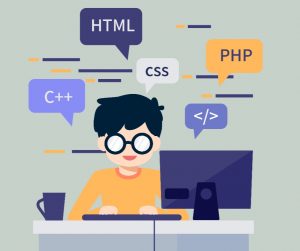
A solid foundation in arithmetic is not required to begin a career in technology, but it can help you use available tools to solve challenges. How? You can get a better understanding of how your work fits in the bigger picture if you know how and where math is used in coding. Here are a few mathematical topics that you can find useful in your work as a programmer.
Also see: Advantages and Disadvantages of living in the United States
Math Fundamentals for Coding
Numbers are the language that computers use. So it stands to reason that learning to code requires a basic understanding of mathematics. The majority of these abilities are not complex mathematical ones, which is excellent news. Here are the fundamental math skills that programmers need.

1. Programming Pre-Algebra: Programming languages employ variables, functions, and operations to specify and resolve issues because they are algebraic. The good news is that pre-algebra was presumably taught to you in middle or high school.
Don’t let the word “pre-algebra” frighten you. Standard arithmetic is required since practically every program you develop will include addition, subtraction, multiplication, and division. These fundamental abilities can help you approach challenges logically and cultivate a programmer’s attitude.
Also see: Advantages and Disadvantages of Delegated Legislation
2. Boolean algebra and binary mathematics for programming: Since computers employ 1s and 0s to represent everything, including text, graphics, numbers, and symbols, binary mathematics is a fundamental component of computer science. They employ the Boolean logic, where 1 denotes truth and 0 denotes false, to carry out the binary instructions.
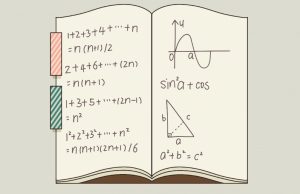
Have you ever wondered how the processors and chips in your computer operate? Or then, why do colors in graphic design have a definite number allocated to them? That is logic gates and Boolean algebra in action.
What uses does Boolean logic have in programming? The majority of contemporary computer programs regularly make judgments using Boolean logic. Additionally, almost all programming languages use booleans as a fundamental building block for the implementation of statements. Learning the fundamentals of Boolean algebra as a beginning programmer will not only help you with your coding but will also allow you to exercise your logic skills.
Also see: Most corrupt African countries 2022
Jobs in Programming for Those Who Hate Math
Don’t worry if the thought of doing complicated equations makes your hands sweat. There are several computer job choices that have a lot of potential and need far less math theory. Let’s look at IT employment options for individuals who dislike math.
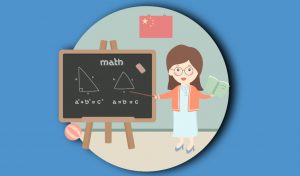
1. Web Development: Agile teams of developers create solutions for challenging issues. Along with other engineers, you would be building code to create applications and websites. This calls on you to be a solid team player, possess logical thinking skills, and be well-versed in software development methodologies. You don’t need to be an expert in advanced mathematics.
If you’re searching for a career that will likely be in demand for many years to come, this is a perfect field for you. According to the Bureau of Labor Statistics, demand for software engineers would increase by 22% by 2030.
2. Engineering for Quality Assurance: Engineers in quality assurance make that software and applications function as intended. As a quality assurance engineer, you would use software automation techniques to test and evaluate newly generated software.
Success in this position depends on your ability to pay attention to detail, conduct investigations, and have a working understanding of programming and software automation, but it is not necessary to have a strong background in mathematics. You’ll require programming knowledge, so completing a curriculum like our Full Stack Web program will prepare you for a position in quality assurance engineering.
By the way, this is a highly sought-after and wealthy industry. The typical annual wage for quality assurance engineers is $110,000, according to the Bureau of Labor Statistics.
Recommended: Meaning And Features Of Joint Tenancy
3. DevOps Engineering: A DevOps engineer is someone who oversees a group of software engineers and helps to streamline and improve the development process. They often are experts in a variety of programming languages and operating systems and have the capacity to see the full development process holistically.
Although it’s a tough profession, DevOps engineers seldom employ sophisticated mathematics in their daily work.
Also see: Differences Between Coding and Programming
If I Don’t Like Math, Can I Still Become a Coder?
Absolutely, yes! In order to code, you must be able to solve issues using data modeling and algorithms and have the perseverance to see them through.
Employers require a workforce that is diverse and innovative, with a wide range of abilities, experiences, and personalities. That also applies to those who dislike math! In fact, when asked if computer science requires math specialists, many developers answer emphatically in the negative.
Recommended: Richest Fashion Brands in The World 2023
Conclusion
Although you might not think that computer programming requires as much math as you once thought, once you know what’s going on, you can write programs that are more dependable and effective, contribute to the fundamental libraries that frequently implement the math, and, quite frankly, feel more confident about your work.
The basic message is that arithmetic prowess is not a must for success as a developer. Wherever you are on your coding journey, concentrating on problem solving, teamwork, and creative thinking may help you advance your programming abilities.

Edeh Samuel Chukwuemeka, ACMC, is a lawyer and a certified mediator/conciliator in Nigeria. He is also a developer with knowledge in various programming languages. Samuel is determined to leverage his skills in technology, SEO, and legal practice to revolutionize the legal profession worldwide by creating web and mobile applications that simplify legal research. Sam is also passionate about educating and providing valuable information to people.